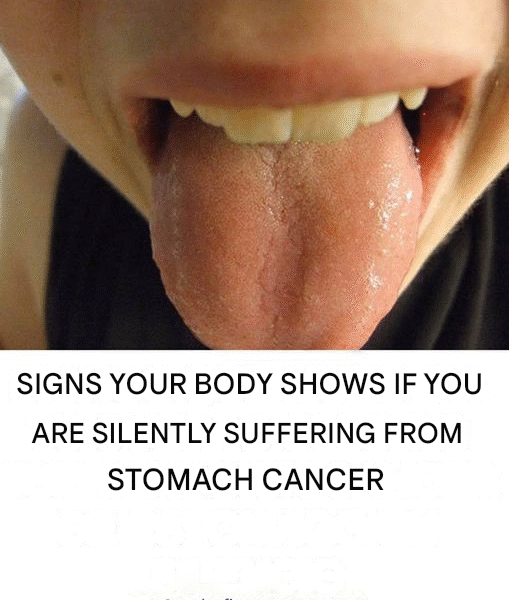If You Suffer from Stomach Cancer, These Are the Signs Your Body Will Show
Stomach cancer, also known as gastric cancer, is a serious condition that affects the stomach lining. Unfortunately, this type of cancer is often diagnosed at later stages because its symptoms can be vague and easily mistaken for common digestive issues. However, there are several signs that can indicate the presence of stomach cancer. Understanding these signs is crucial for early detection and treatment. Here’s an overview of the common symptoms and how they might manifest in your body.
1. Persistent Stomach Pain and Discomfort
One of the most common early symptoms of stomach cancer is persistent pain or discomfort in the stomach area. This pain may be dull or sharp and can be felt in the upper abdomen. In many cases, the pain may get worse after eating or may occur between meals. While stomach pain is often associated with indigestion or other less serious conditions, if it persists or worsens over time, it could be a sign of cancer.
2. Unexplained Weight Loss
Unexplained weight loss is a concerning symptom of many types of cancer, including stomach cancer. This occurs because the body’s metabolism changes, and the cancer can affect the way your body absorbs nutrients. You might notice a significant drop in weight without changing your diet or exercise routine. If you experience sudden weight loss without an obvious cause, it’s important to consult with a healthcare professional.
3. Loss of Appetite
People with stomach cancer often experience a loss of appetite. This is due to the tumor growing and pressing against the stomach, which can make you feel full even after eating only a small amount of food. Additionally, nausea and discomfort after eating can contribute to a reduced desire to eat. If you notice that you are eating less than usual or that food no longer seems appealing, it could be a sign of stomach cancer.
4. Nausea and Vomiting
Nausea and vomiting are other common symptoms of stomach cancer, especially as the tumor obstructs the digestive tract. This can lead to a feeling of bloating, nausea, and vomiting after meals. In some cases, the vomiting may contain blood, which is a serious warning sign that should not be ignored. If you experience persistent nausea or vomiting, it’s important to seek medical attention immediately.
5. Heartburn or Indigestion
Heartburn or indigestion is a common issue that many people experience from time to time. However, if these symptoms become persistent or are accompanied by other signs, it could indicate a more serious problem. Stomach cancer can cause acid reflux, heartburn, and a feeling of fullness or bloating even after eating small amounts. If heartburn or indigestion persists for weeks and does not respond to typical treatments, it’s time to see a doctor.
6. Blood in Stool or Vomit
Finding blood in your stool or vomit is a significant red flag. This may indicate that the cancer has caused bleeding in the stomach or digestive tract. The blood in the stool may appear as bright red or look like dark, tarry stools, depending on where the bleeding is occurring. Vomiting blood is also a serious symptom that requires immediate medical attention.
7. Fatigue and Weakness
Fatigue and general weakness are often experienced by individuals with stomach cancer. As the body battles the disease, it can become drained, leading to extreme tiredness, even after rest. Fatigue can also result from anemia, which may occur due to chronic blood loss from the stomach. If you feel consistently fatigued or weak, it’s important to address this with your healthcare provider.
8. Swelling or Fluid Buildup
In some cases, stomach cancer can cause fluid to accumulate in the abdomen, leading to bloating or swelling. This condition, known as ascites, can occur as a result of cancer spreading to the peritoneum (the lining of the abdomen). If you notice a sudden increase in abdominal size or persistent bloating, it’s important to seek medical advice.
What to Do If You Experience These Symptoms
If you experience any of the symptoms listed above, especially if they persist or worsen over time, it’s crucial to consult a healthcare professional as soon as possible. While these symptoms can also be associated with other, less severe conditions, they should not be ignored. Early detection of stomach cancer can significantly improve the chances of successful treatment.
Your doctor may recommend tests such as endoscopy, blood tests, or imaging studies to determine the cause of your symptoms and diagnose the condition. Remember, the earlier the cancer is detected, the better the chances for effective treatment and recovery.
Spread the Word: Share and Like!
If you found this information helpful, please take a moment to like this post and share it with others. Early awareness can save lives. Let’s help spread knowledge and encourage others to stay informed about their health!
